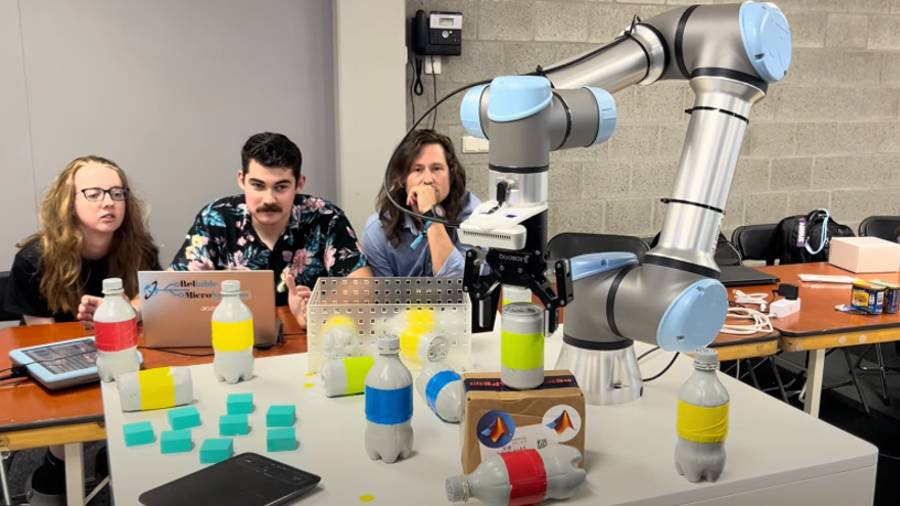Lipscomb engineering team places third in international 2024 RoboCup ARM Challenge
Lipscomb students showcased exceptional programming and robotics skills to develop an algorithm that can be deployed in commercial robots.
Kim Chaudoin |
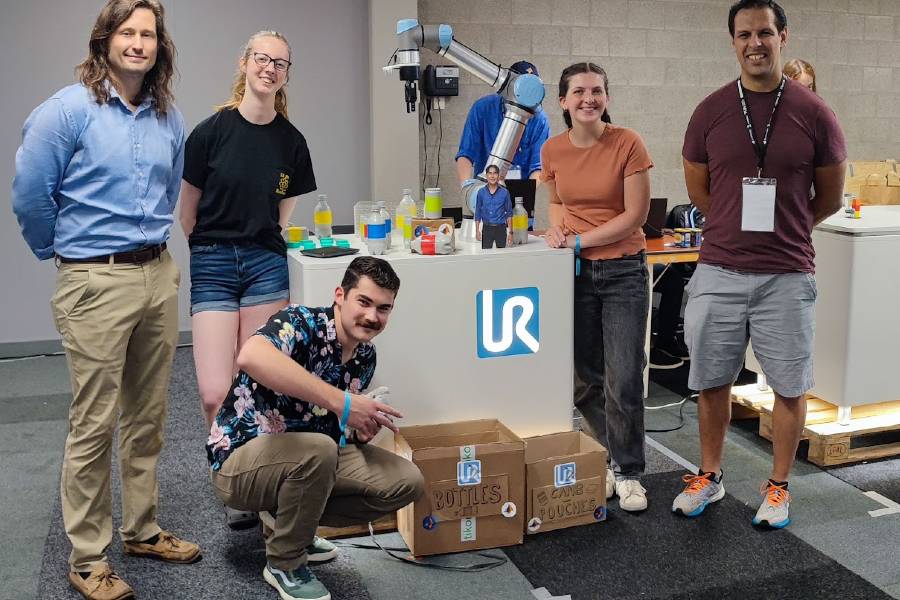
A team of students from Lipscomb University’s Raymond B. Jones College of Engineering has earned a prestigious third-place finish at the 2024 RoboCup Autonomous Robot Manipulation (ARM) Challenge Finals, held July 17-21 in Eindhoven, Netherlands. Competing against top teams from around the world, the Lipscomb team showcased its exceptional programming and robotics skills, solidifying its reputation on the global stage.
The 2024 RoboCup ARM Challenge, sponsored by Universal Robotics and MathWorks, is a premier international competition focused on advancing autonomous robot manipulation technologies. The competition challenges teams with developing algorithms to control robot manipulators in complex environments. This year’s event required participants to complete a recycling task using a robot to classify objects like bottles, cans and detergent pouches into appropriate bins—a task requiring high-level programming, image recognition and motion planning.
After months of rigorous preparation that included programming, testing and debugging, the Lipscomb team qualified for the global competition as one of six finalists. In the finals, the team’s algorithm performed exceptionally well, allowing them to secure a third-place finish out of 18 teams.
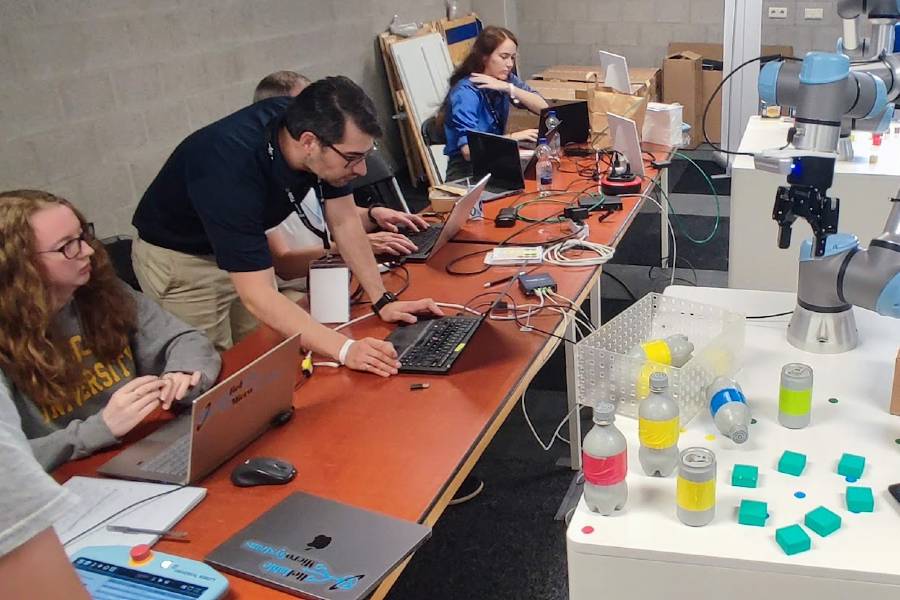
“After arriving a year-and-a-half ago, this spring was the first opportunity to start teaching robotics at Lipscomb. I wanted the students to have the opportunity to participate in a world-leading international competition as an extension of their course to inspire them to grasp the world of intelligent robotics,” shared Dr. Juan Rojas, assistant professor in EECE and an expert in intelligent robotic manipulation. “The students were challenged by the course but made grade strides. It was satisfying to then be able to work with several of them as summer research fellows and invest ourselves into driving the system development. We received a lot of support from all over the University, alumni, family and friends.”
“Taking four students to the Netherlands posed many challenges but we made it and performed well,” he continued. “I look forward to see how much we can accomplish at Lipscomb with our robotics research program and courses. We recently acquired a state-of-the-art Franka Research Robot, have applied for a National Science Foundation grant and will continue to look for further funding and collaborations. We are looking to build an undergraduate research program. A robotics concentration track may also be formalized soon.
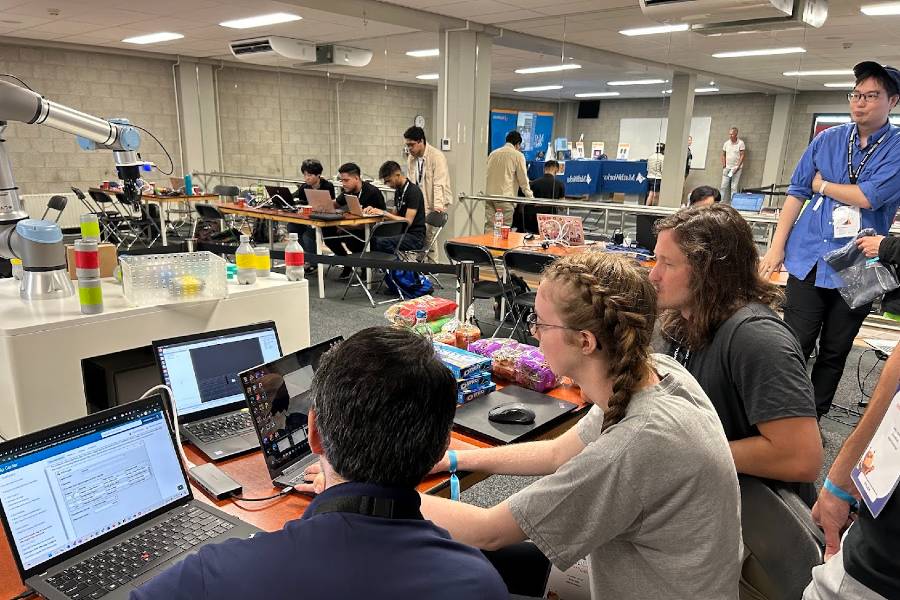
The Lipscomb team, composed of electrical and computer engineering students seniors Cleiver Ruiz-Martinez, Gracelyn Grant and Kris Pesnell, sophomore Honors student Gabriel Evertt and May graduates Courtney Stevens and Joseph Laporte, demonstrated their expertise in autonomous robotics. Everett, who worked on the obstacle avoidance system for the robot, reflected on the impact of this experience. Grant, Peznell, Stevents and Laporte represented the team in the finals in the Netherlands.
"Having just finished my freshman year, being part of a team that placed third in the world is incredible," Everett shared. "It’s motivating and has given me confidence as I continue my journey as an engineering student. When I first joined, the upperclassmen welcomed me and guided me step by step, making sure I was up to speed. The sense of community on the team has been a huge part of our success."
The RoboCup ARM Challenge is designed to push participants to develop cutting-edge algorithms that can be deployed in commercial robots, bridging the gap between academia and industry. Lipscomb’s team impressed judges with their ability to solve complex tasks using MATLAB and ROS, gaining valuable hands-on experience in the field of autonomous robotics.
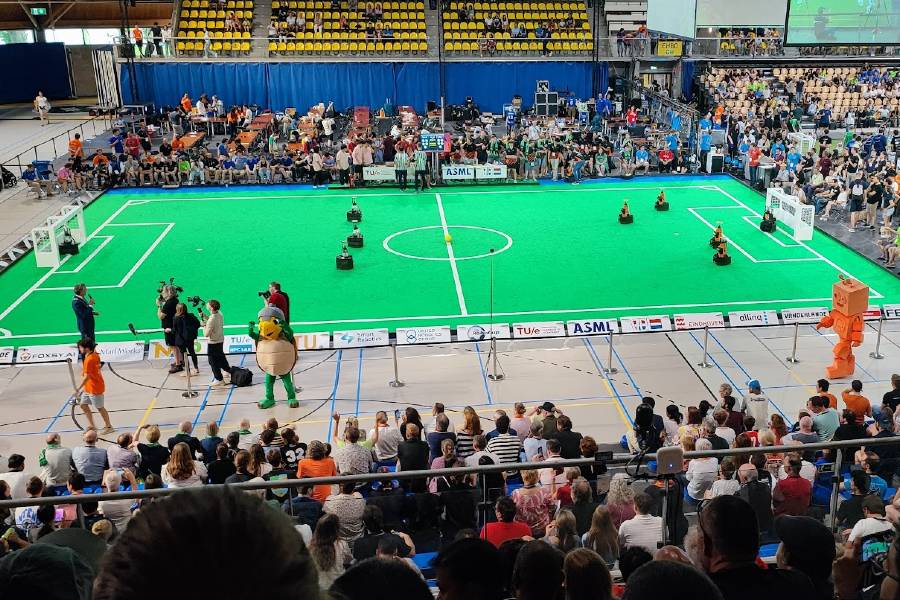
The RoboCup competition is widely regarded as the premier international robotics event, attracting over 2,500 participants from more than 40 countries. It features multiple leagues, including autonomous robot soccer, rescue missions and robots for home and work environments.
Lipscomb’s achievement in the ARM Challenge demonstrates the university’s commitment to equipping students with the skills needed to tackle real-world challenges through innovative research and collaboration. As Everett emphasized, “This experience has pushed us to think critically and collaborate in ways that extend far beyond the classroom.”
Learn more about the ongoing research project here. For more information about the Raymond B. Jones College of Engineering, visit www.lipscomb.edu/engineering.
— Photos by Juan Rojas
